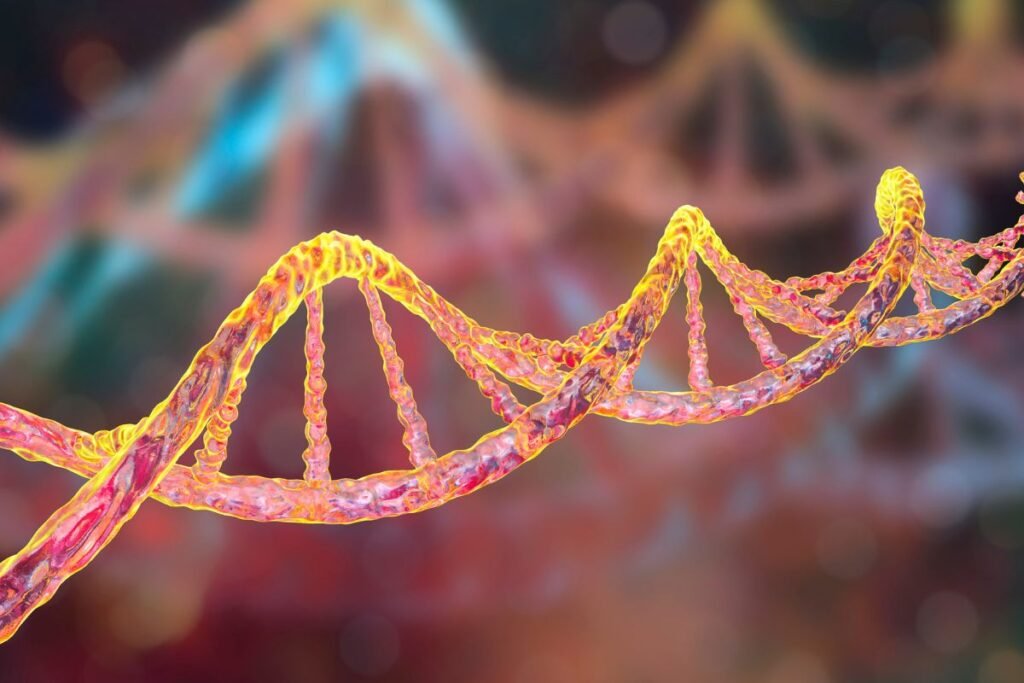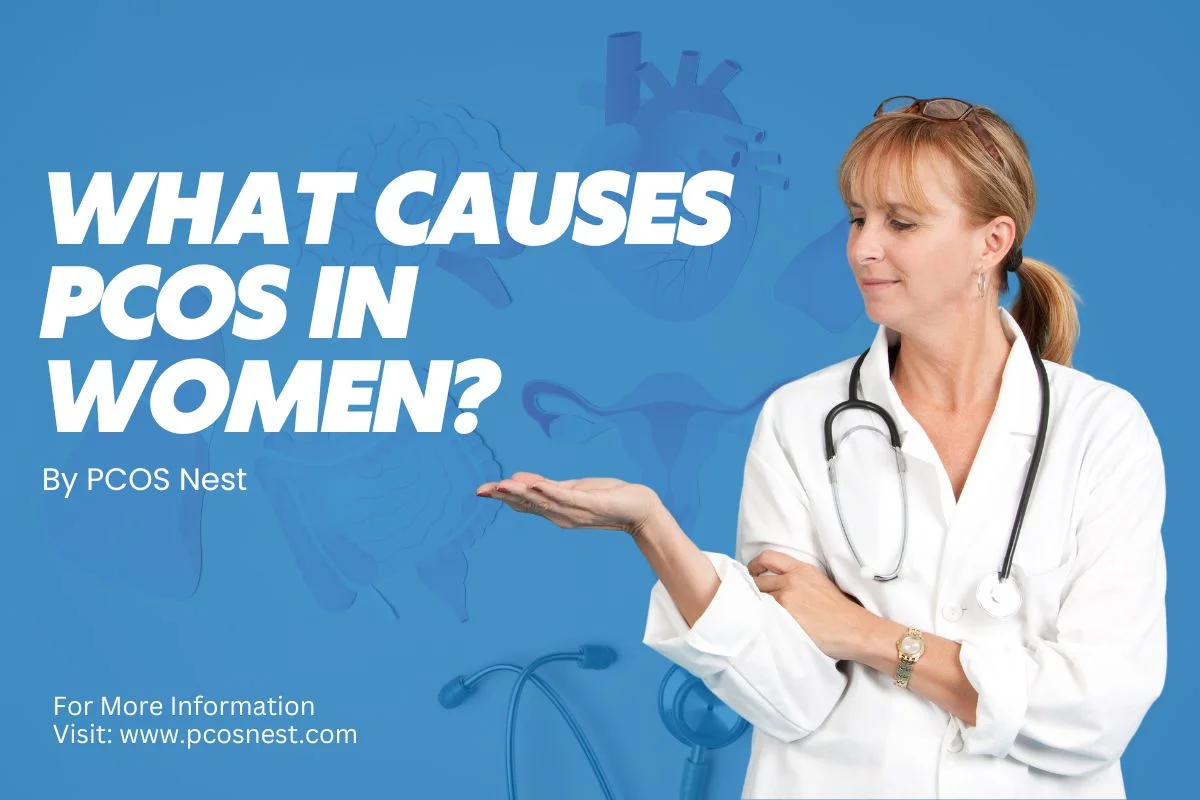The exact cause of PCOS (Polycystic Ovary Syndrome) is not exactly revealed now, but researchers believe that it’s due to a combination of genetic, hormonal, and environmental factors.
What Causes PCOS in Women?
There are some reasons behind PCOS:
1. Insulin Resistance
What It Means: Insulin is a hormone that helps the body use sugar for energy. However, in many women with PCOS, the body doesn’t use insulin effectively. This is called insulin resistance, which means the body has to make extra insulin to keep blood sugar levels normal.
What It Does: The extra insulin can cause the ovaries to produce more androgens (often known as “male hormones” but present in both men and women). High levels of androgens can cause acne, unwanted hair growth, and irregular periods.
A study published in the Journal of Clinical Endocrinology & Metabolism monitored 100 women with PCOS who had insulin resistance. Over time, these women had higher levels of testosterone and experienced more PCOS symptoms as compared to women with normal insulin levels.
2. Hormonal Imbalance
What It Means: Due to PCOS there are higher-than-normal amounts of androgens, which are male hormones that women also have. These hormones are necessary in small quantities, but too much upsets the balance of female hormones.
What It Does: The imbalance can interfere with the ovaries that release eggs, thus resulting in irregular periods or even stopping them altogether. This is one reason PCOS is a leading cause of infertility.
In a study at Harvard Medical School, researchers researched women with high androgen levels for five years. Many of these women had very few ovulations (when the ovary releases an egg) and often missed their periods.

3. Genetics
What It Means: PCOS seems to be hereditary, which means that if your mother or sister has PCOS, you are more likely to have it too. This suggests a genetic connection.
What It Does: Genetic factors influence how the body regulates insulin, produces hormones, and responds to inflammation. However, having family members with PCOS doesn’t mean you will definitely have it, it only raises the chances.
The famous endocrinologist Dr. Douglas C. Cooper and his team conducted one of the early familial studies on PCOS in 1968. According to Cooper’s study, PCOS might follow an autosomal dominant pattern of inheritance, which means that it could be passed from parent to child with a likelihood of appearing in successive generations. He noted that sisters and mothers of women with PCOS frequently showed similar symptoms, which supported the theory of genetic transmission.

4. Low-Grade Inflammation
What It Means: Inflammation is a natural process that helps the body to fight with infection and heal injuries. However low-grade inflammation (a type of inflammation without an infection or injury) can sometimes be found in PCOS.
What It Does: This type of inflammation might cause the ovaries to produce androgens, which can worsen PCOS symptoms. It also increases the risk of other health issues, such as heart disease.
A study published in Obstetrics & Gynecology observed the inflammation levels in women with and without PCOS. According to this study, women with PCOS had higher inflammation, which was linked to more severe symptoms like hair growth on the face and body.
5. Lifestyle & Environmental Factors
Diet, exercise, and the environment can affect PCOS. Being overweight can make it harder for the body to use insulin, which may result in more hormonal issues.
Also Read: How I Lost Weight with PCOS
Certain lifestyle choices, like eating a lot of processed foods (junk food) and not getting enough nutrients, can increase insulin resistance and make PCOS symptoms worse. Researchers are also studying how chemicals in the environment might play a role, though the effects aren’t yet clear.
Conclusion:
In conclusion, Polycystic Ovary Syndrome (PCOS) is a complex condition that is caused by genetic, hormonal, lifestyle, and environmental factors. Awareness and understanding of these causes are very necessary for early diagnosis and effective management. By making positive lifestyle changes, women can improve their symptoms and overall health.

